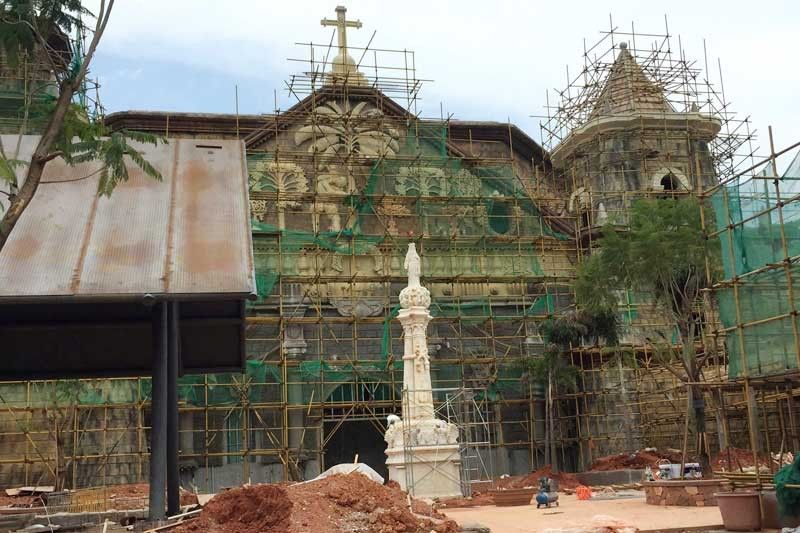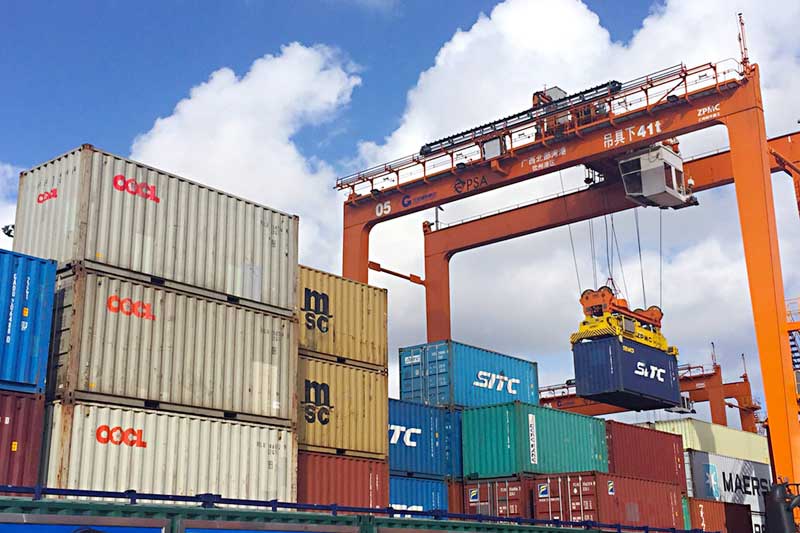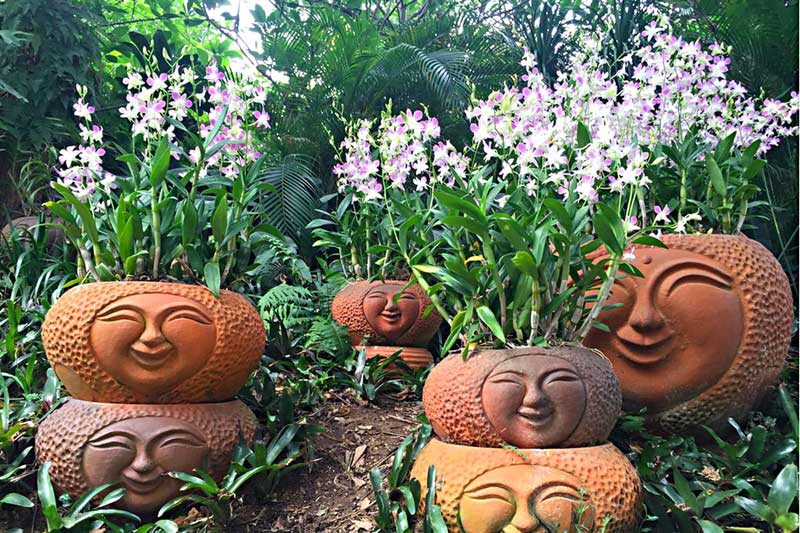An Asean theme park in China

MANILA, Philippines — In this “Green City” capital of Guanxi province in China, a familiar structure is being built with a bas relief of a coconut tree and an infant.
Here in Nanning, the soon-to-open Fantawild theme park showcases landmarks of the countries of the Association of Southeast Asian Nations (ASEAN). The Philippines is represented by the Santo Tomas de Villanueva Parish Church, also known as the Miag-ao church in Iloilo.
A dome theater in the style of Angkor Wat that will show visitors videos of the renowned ruins, a water rafting attraction that will feature the water villages of Brunei and another theater that will allow visitors to go on a virtual trip to ancient Burma are among the major attractions in this theme park that is set to open next month.
Iloilo’s Miag-ao church will house a 4D theater, with a 360-degree revolving platform that will allow visitors to see not just the natural scenery of the Philippines, but also its fiestas, according to Fantawild marketing manager Yang Dan.
Marketing director Hu Yang told The STAR the theme park will introduce the ASEAN landmarks to residents of Guanxi province, China’s southernmost province serving as a gateway to the ASEAN region.

A bustling container port in Nanning, China’s gateway to the ASEAN
It will also attract tourists to Nanning, the venue for the ASEAN-China economic forum.
This year’s Pan-Beibu Gulf Economic Cooperation Forum, with the theme “Build New International Land and Maritime Trade Routes for a China-ASEAN Community of Shared Future,” focused on the shared interests and common goals China and the ASEAN could achieve by working together under President Xi Jinping’s One Belt One Road initiative.
During the opening ceremony, Gao Yan, Vice Minister of Commerce of China, said that trade between China and ASEAN is booming – a 21 percent increase in trade volume amounting to $133.64 billion, and accumulated mutual investment amounting $196.64 billion.
With Nanning as an investment hub, an ASEAN theme park is timely to attract tourists to this lush green city, Hu said.
Besides being a tourist destination, the Miag-ao church also boasts of a rich cultural history. According to Hiligaynon scholar Rosario Cruz Lucero in her work “Ang Bayan sa Labas ng Maynila,” the relief of St. Christopher carrying the child Jesus in the midst of Panay island’s flora and fauna was an expression of the folk Filipino’s capability to indigenize the colonial religion.
The relief on the façade just below the steeple illustrates the folk belief that a coconut tree bears more fruit if the farmer carries a child on his shoulders.

Orchids abound at the greenhouse within the park, including the “Monkey King” orchid.
Completed in 1797, the Baroque style church is included in Unesco’s World Heritage List. The replica in the theme park was conceptualized by the company’s design team, who visited the Philippines to scout for interesting structures, Hu said.
Visiting journalists were treated to a flight simulation inside a theater over the ASEAN landmarks. Among the sites digitally featured were the Angkor Wat ruins in Cambodia, the Bagan temples in Myanmar, the Grand Palace in Bangkok, the Borobudur temples in Indonesia and the Merlion park in Singapore.
In the Philippines, the theater allowed us to fly over the Manila Cathedral, located within the walled city of Intramuros which served as the seat of the Spanish colonial government.
A Thai journalist remarked though that the simulated flight may be improper in sacred places like the Grand Palace, which had served as the official residence of the royals.
The management of the theme park vowed to look into ensuring cultural sensitivity in its attractions.
The ASEAN theme park is just one of several sites in Nanning which emerged out of the booming China-ASEAN relations. Industrial parks, busy ports and railways facilitate trade between China and Southeast Asia.

The Guangxi Qinzhou Free Trade Port Area, located along the Strategic Transport Corridor where bustling trade gets a boost from container freight stations and port railways; and the Nanning-Zhongguancun Innovation Demonstration Base, home to information technology, intelligence manufacturing, life and health, and technology service industry zones housed in European-style buildings, serve to promote Nanning both as a trading hub and a modern service center.
Keeping true to its “Green City” character, a lush park sits atop Qingxiu mountain where tourists can stroll around the Sino-ASEAN Friendship Park and take pictures with statues representing their respective ASEAN countries. The Philippines is represented by the Philippine Eagle since Davao City, where the eagles are being bred in captivity, has been Nanning’s sister city since 2007.
Several species of orchids can be found in a greenhouse, with quirky names like the Monkey Orchid, inspired by the character Monkey King in the 16th century classical Chinese novel “Journey to the West,” and the yellow Little Girl orchid, supposedly because it resembles a little girl wearing a yellow dress.
Reaching the top of the mountain park gives one a panoramic view of the bustling city, dotted with many more buildings being constructed. One can only wonder what will Nanning will look like in the years to come, as China’s gateway to the ASEAN opens ever wider.



















